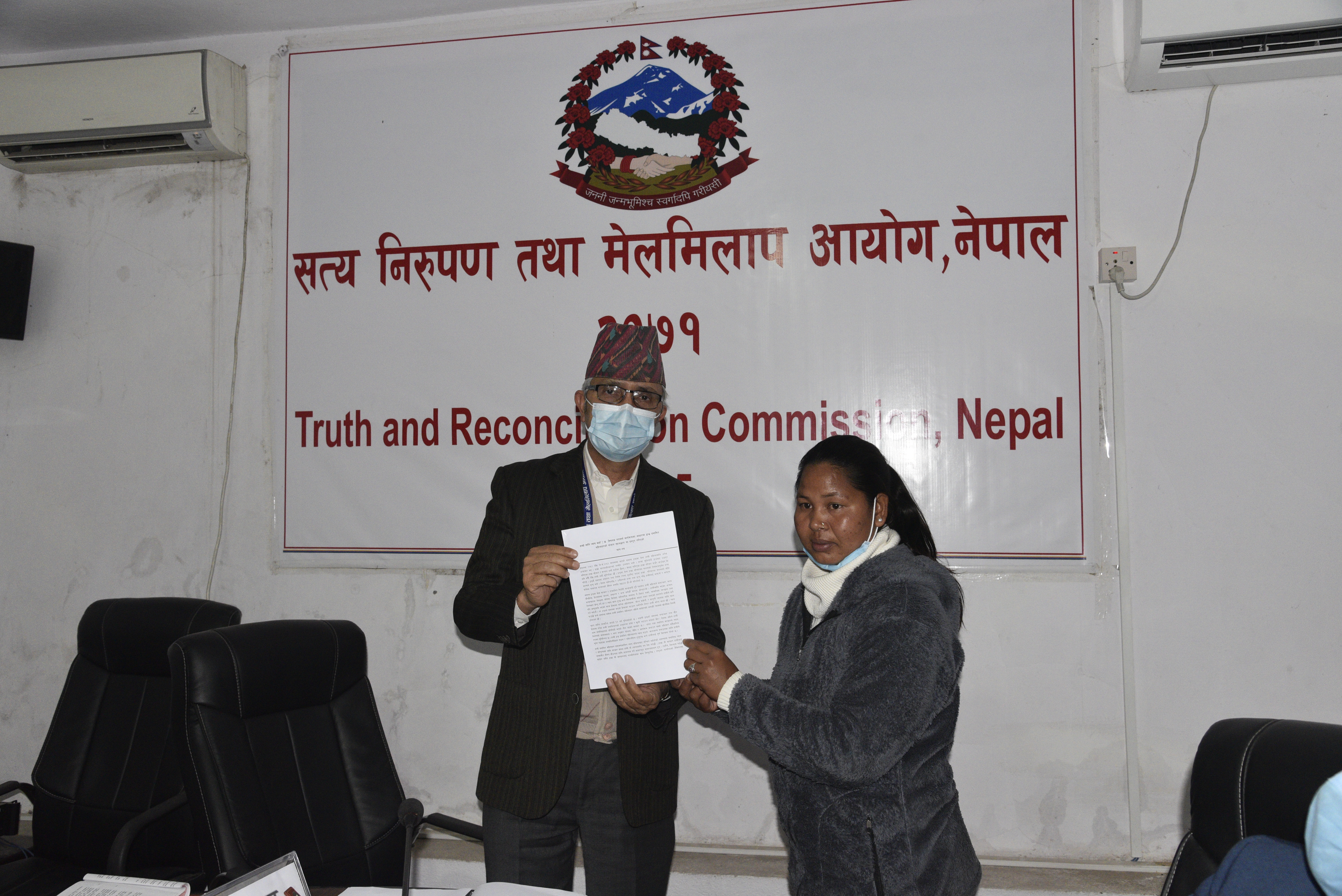
The state went through the armed conflict for a decade. There were severe crimes and violations of human rights during the period that the state has yet to address. Women and adolescent girls fall under the positively affected group suffering from acute torture, including sexual violence.
Eight years after the Maoists and the government signed the Comprehensive Peace Agreement (CPA), a Truth and Reconciliation Commission (TRC) was formed in 2015 to investigate human rights violations and crimes against humanity and to create an enabling environment for social reconciliation. However, female survivors of the conflict are still deprived of justice, reparation, and reintegration into the community, while TRC has completely failed to take challenges faced by female surviors of sexual violence into consideration.
Thus, to address female survivors' issues and to make the TRC accountable for transitional Justice, WOREC and the National Network of conflict survivors convened a physical interaction program on 28th February at the Truth and Reconciliation Commission office.
The program featured Ganesh Dutta Bhatta, Chairperson of TRC, Udaya Raj Sapkota, Secretary of TRC, Parmeshwor Parajuli, Advocate at TRC, Lubha Raj Neupane, Executive Director of WOREC, along with other members of TRC and representatives from Sahaj Network, National Network of Conflict survivors, which consists of 161 female survivors of conflict from districts such as Dang, Kailali and Rukum.
In the interaction program, female survivors of conflict Kabita Khadka, Parbati Buddha, Soniya Chaudhary along with other female survivors of conflicts from Khara of Rukum district and Gauriganga municipality of Kailali district shared challenges that they are facing with the representatives of TRC.
Soniya Chaudhary, the chairperson of Sahaj Network, highlighted the gruesome reality of the majority of female survivors of sexual and other forms of violence committed during the conflict, who are not only battling with their emotional trauma but are also facing financial burden and social stigma in the absence of proper mechanism that addresses transitional Justice including sexual violence.
"A female survivors of sexual violence face social stigma and rejection from their families and communities. As a result, many suffer in silence. Those, who have filed a report on sexual violence, have neither received any financial support from the government nor they have access to Justice. Instead, they have been outcast in society," said Chaudhary.
Chaudhary also expressed the Network's concern regarding the distribution of identity cards by TRC for identified conflict survivors. "For survivors of conflict to file a complaint, they need to submit copies of evidence which is impossible in the case of sexual violence. Thus, TRC and government should come up with different provisions to address the issue of female survivors of sexual violence concerning access to identity cards," said Chaudhary.
In the program, Chaudhary presented a demand letter to the chair. The 11 point demands of conflict survivors listed in the demand letter are as follows:-
The members of the TRC showed their great concern towards this issue and positive response to the Network's demands. Chairperson of TRC Ganesh Dutta Bhatta said that the TRC is working closely with the provincial government and is preparing the plans and policies for the Justice and reparation of female survivors of conflict.